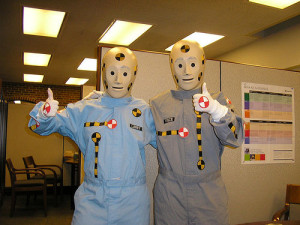I attended Day 1 of YOW! Sydney 2013 and thought some people might get something useful out of my notes. These aren’t my complete reinterpretations of every slide, but just things I jotted down that I thought were interesting enough to remember or look into further.
 Michael T. Nygard (@mtnygard) is probably best known as the author of the 2007 book ‘Release It!‘, which teaches developers how to look beyond just getting their code working and instead design it from the outset to handle the harsh conditions of production environments. He has since become a DevOps luminary and now works at Cognitect. He spoke at YOW! 2013 about ‘Five Years of DevOps: Where are we Now?’.
Michael T. Nygard (@mtnygard) is probably best known as the author of the 2007 book ‘Release It!‘, which teaches developers how to look beyond just getting their code working and instead design it from the outset to handle the harsh conditions of production environments. He has since become a DevOps luminary and now works at Cognitect. He spoke at YOW! 2013 about ‘Five Years of DevOps: Where are we Now?’.
Michael started off setting the timeline by pointing out that Chef and Puppet were preceded by CFEngine in about 1993!
He explained how his own experience has contributed to his DevOps insight: he worked as a Dev in Ops for some time, showing the Ops team how to solve some of their problems with Dev-like approaches, but also finding lots of problems with the way Devs created software, which was the chief inspiration for his book. Continue reading

 Hadi Hariri is a Developer and Technical Evangelist at
Hadi Hariri is a Developer and Technical Evangelist at 
 Keynote, Day 1:
Keynote, Day 1: